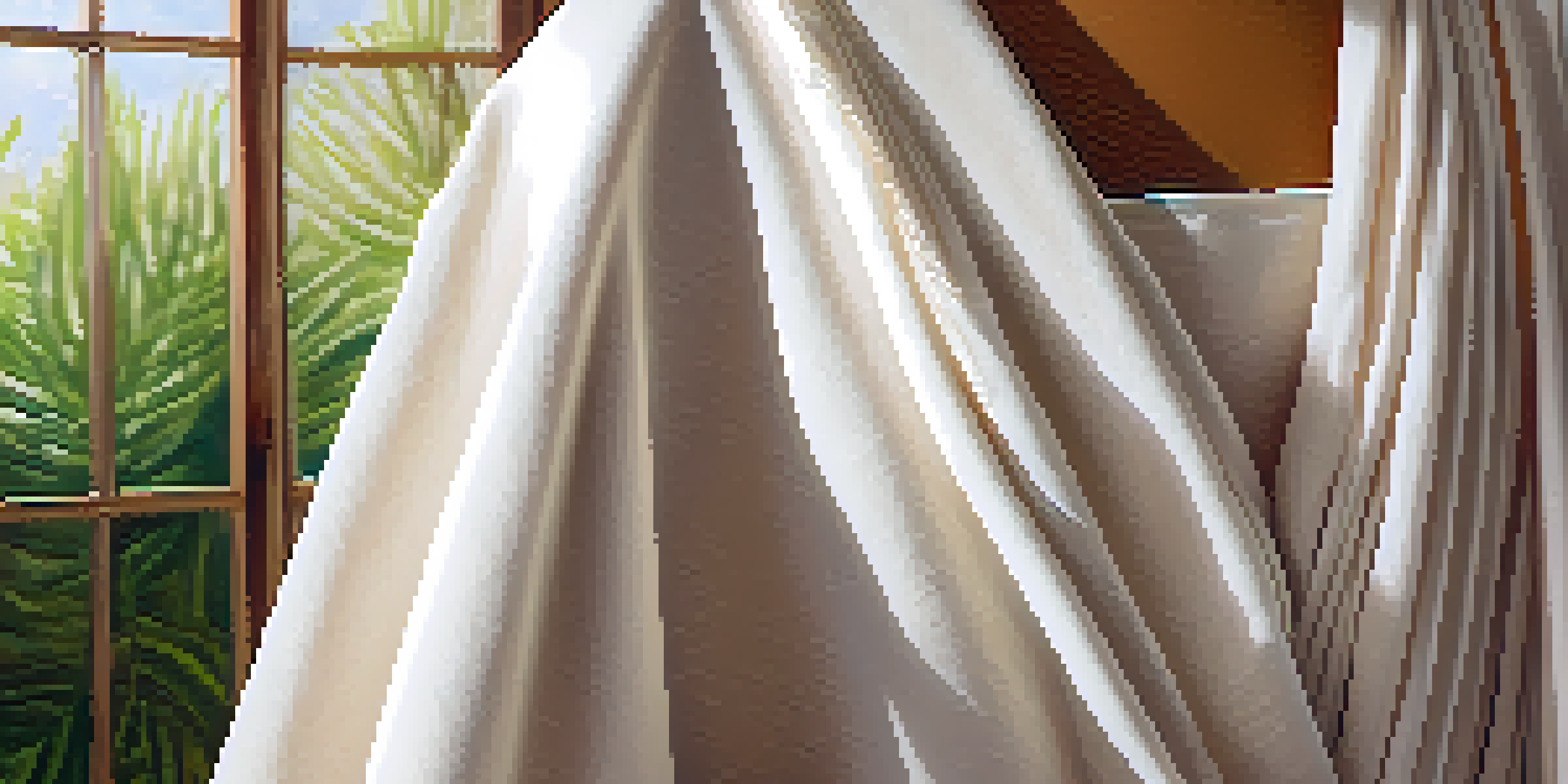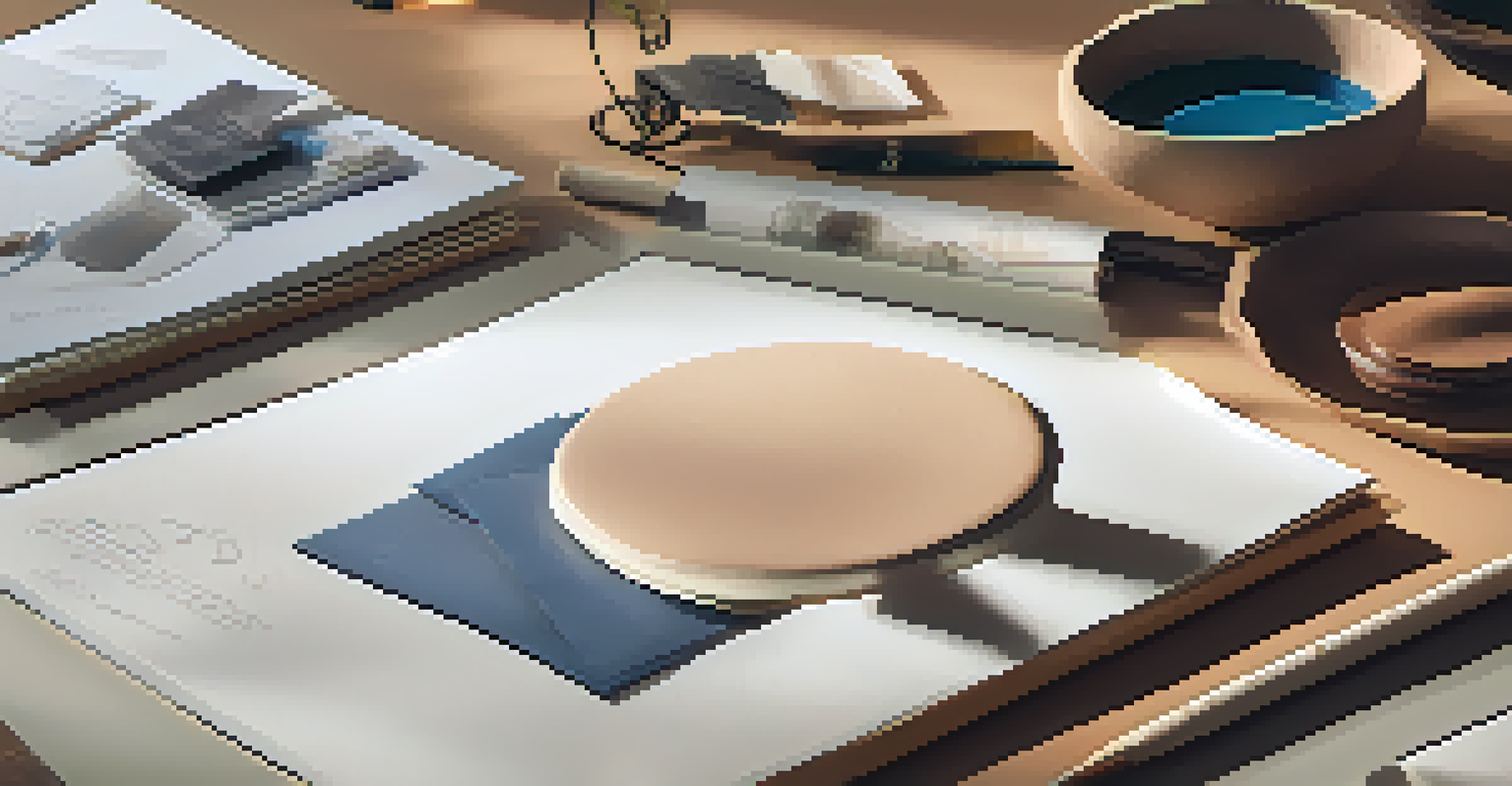Sustainable Fashion: A Transformative Trend in Luxury Retail

Understanding Sustainable Fashion in Luxury Retail
Sustainable fashion refers to clothing and accessories that are produced with minimal environmental impact. In the luxury sector, this means high-quality materials sourced responsibly, reducing waste, and ethical labor practices. Consumers are increasingly interested in the origins of their garments, making sustainability a key consideration in their purchasing decisions.
Fashion is the armor to survive the reality of everyday life.
Luxury brands are recognizing that sustainability isn't just a trend; it's becoming a necessity. By adopting eco-friendly practices, they not only appeal to environmentally conscious consumers but also enhance their brand's image. This shift is reshaping how luxury is defined, moving from mere opulence to thoughtful consumption.
For example, brands like Stella McCartney have long championed sustainability, using alternative materials and promoting animal welfare. Such initiatives are not only attracting loyal customers but also setting new standards for the industry, encouraging others to follow suit.
The Rise of Eco-Conscious Consumers
Today's consumers are more informed than ever, often armed with information about brands' environmental impacts. A growing number of shoppers prefer to support companies that prioritize sustainability, seeking transparency in production processes and sourcing. This shift has prompted luxury brands to rethink their strategies to stay relevant.

Millennials and Gen Z, in particular, are driving the demand for sustainable options in fashion. They value experiences and authenticity over mere possessions, making them more likely to choose brands that reflect their values. This generation's focus on ethics is reshaping the luxury market landscape.
Sustainability is Essential in Luxury
Luxury brands are shifting towards sustainable practices to meet consumer demand and enhance their brand image.
Brands that fail to adapt may find themselves left behind as eco-conscious consumers seek alternatives. The rise of second-hand luxury marketplaces, like The RealReal, exemplifies this trend, allowing consumers to buy and sell pre-owned items, further promoting sustainability.
Innovative Materials: The Heart of Sustainable Fashion
One of the most exciting aspects of sustainable fashion is the development of innovative materials. From organic cotton to recycled polyester, brands are exploring alternatives that minimize environmental impact. These materials not only reduce waste but can also enhance the quality and durability of garments.
Sustainability is no longer about doing less harm. It’s about doing more good.
For example, brands like Eileen Fisher are leading the charge by using environmentally friendly fabrics and implementing take-back programs. This approach not only reduces waste but also encourages a circular economy, where products are reused and recycled rather than discarded.
As technology advances, we can expect even more groundbreaking materials to emerge, such as lab-grown leather and biodegradable fabrics. These innovations are paving the way for a future where sustainability and luxury coexist harmoniously.
Ethical Labor Practices: A Cornerstone of Sustainability
Sustainability goes beyond materials; it also encompasses the treatment of workers throughout the supply chain. Ethical labor practices are crucial in luxury fashion, ensuring that artisans and factory workers are paid fair wages and work in safe conditions. Brands that prioritize these values are gaining trust and loyalty from consumers.
Many luxury brands are now implementing initiatives to improve labor conditions, from transparency in sourcing to supporting local artisans. For example, brands like Fair Trade offer certifications that guarantee ethical practices, appealing to consumers who value social responsibility.
Eco-Conscious Consumers Drive Change
Millennials and Gen Z prioritize sustainability, prompting luxury brands to rethink their strategies to stay relevant.
By investing in ethical labor practices, luxury brands not only contribute to social good but also differentiate themselves in a competitive market. Consumers are increasingly willing to pay a premium for products that embody their values, making ethical practices a win-win for both brands and buyers.
The Impact of Fashion Weeks and Industry Events
Fashion weeks and industry events play a significant role in promoting sustainable fashion. Major designers are showcasing eco-friendly collections, pushing the envelope of creativity while advocating for sustainability. This exposure helps raise awareness and encourages other brands to consider their practices.
For instance, the Copenhagen Fashion Summit has become a pivotal event for discussions around sustainable fashion, attracting industry leaders and innovators. Such platforms allow for collaboration and the sharing of best practices, fostering a community committed to positive change.
As these events gain visibility, they inspire both emerging and established brands to adopt sustainable practices, creating a ripple effect throughout the industry. The more these values are celebrated on such platforms, the more likely they are to be embraced by consumers.
Challenges Facing Sustainable Luxury Fashion
Despite the growing interest in sustainable fashion, challenges remain. One significant hurdle is the higher costs associated with sustainable materials and ethical production methods. Luxury brands must balance these costs while maintaining their exclusivity and appeal to high-end consumers.
Additionally, there can be skepticism about the authenticity of sustainability claims. Terms like 'greenwashing' refer to brands that falsely present themselves as eco-friendly without making substantial changes. As consumers become more discerning, brands must be transparent and genuine in their sustainability efforts.
Innovative Materials Shape the Future
The development of eco-friendly materials and ethical labor practices is paving the way for a more sustainable luxury fashion industry.
Addressing these challenges requires collaboration within the industry, as well as consumer education. By openly sharing their journeys and successes, brands can build trust and inspire others to commit to sustainable practices.
The Future of Sustainable Luxury Fashion
Looking ahead, the future of sustainable luxury fashion appears promising. As consumer demand for ethical products continues to rise, brands will need to innovate and adapt to stay relevant. The integration of technology, such as blockchain for supply chain transparency, could revolutionize how sustainability is approached.
Furthermore, the shift towards a circular economy is gaining momentum, encouraging brands to focus on lifecycle management and product longevity. This means designing items that are not only stylish but also built to last, ultimately reducing waste and promoting sustainability.

As more brands commit to sustainable practices, we can expect to see a transformation in luxury retail. The industry is poised for a shift where luxury and sustainability go hand in hand, creating a more responsible and beautiful future for fashion.